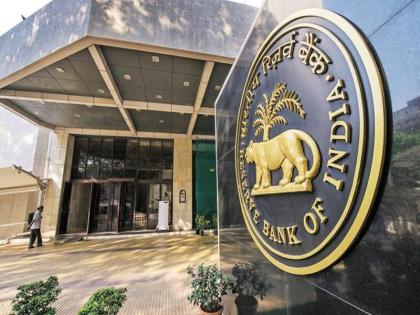What is Universal Banking? RBI Grants This License to a Bank for the First Time in 11 Years
By Lokmat Times Desk | Updated: August 8, 2025 16:06 IST2025-08-08T16:02:48+5:302025-08-08T16:06:29+5:30
The Reserve Bank of India (RBI) has granted AU Small Finance Bank the prestigious Universal Banking License, marking the ...

What is Universal Banking? RBI Grants This License to a Bank for the First Time in 11 Years
The Reserve Bank of India (RBI) has granted AU Small Finance Bank the prestigious Universal Banking License, marking the first such approval in the country in 11 years. AU Small Finance Bank, the largest among India’s 11 small finance banks, can now offer a broader spectrum of financial services, placing it in the league of major banks. This development paves the way for other small banks to aim for similar expansion. The license enables AU to move beyond its small finance bank limitations, opening access to wider operational capabilities and market opportunities in line with global universal banking models.
What Universal Banking Means
Universal banking is a model where a single bank provides a range of services, including deposits, lending, investment banking, and asset management (AMC). Unlike regular banks, which focus on specific functions, universal banks operate across multiple financial domains. Originating in Europe in the 19th century with institutions like Deutsche Bank and Credit Suisse, the model grew rapidly in the US from the 1990s. Universal banks serve individuals, businesses, and corporations by offering various accounts, loans such as personal, home, and business loans, as well as corporate financial services like share and bond issuance and mergers.
Also Read: Raksha Bandhan: How to Tell if Shop Sweets Are Real or Fake in Just One Minute?
Advantages and Drawbacks
The key benefit of universal banking is the ability to provide all financial services under one roof, saving customers the need to approach different banks for different requirements. It also reduces risks from market volatility by diversifying revenue streams, making the banks potentially more profitable. However, universal banks are often large and complex. If such an institution fails, the economic fallout can be severe. Conflicts of interest may arise between divisions, such as investment banking and wealth management, potentially affecting decision-making and client trust. Managing diverse operations effectively remains a significant challenge for these institutions.
Impact on AU and Industry Outlook
With AU’s upgrade to a universal bank, its capital adequacy ratio will fall below 15%, and its Priority Sector Lending (PSL) target will drop from 60% to 40%. It will no longer be required to keep 50% of its loan portfolio in loans below ₹25 lakh. AU applied for this license on September 3 last year. Ujjivan and Jana Banks have also submitted applications. The last such licenses were issued in 2014 to Bandhan Bank and IDFC Bank, now IDFC First Bank. The move signals a potential shift in India’s small finance banking landscape.
Open in app